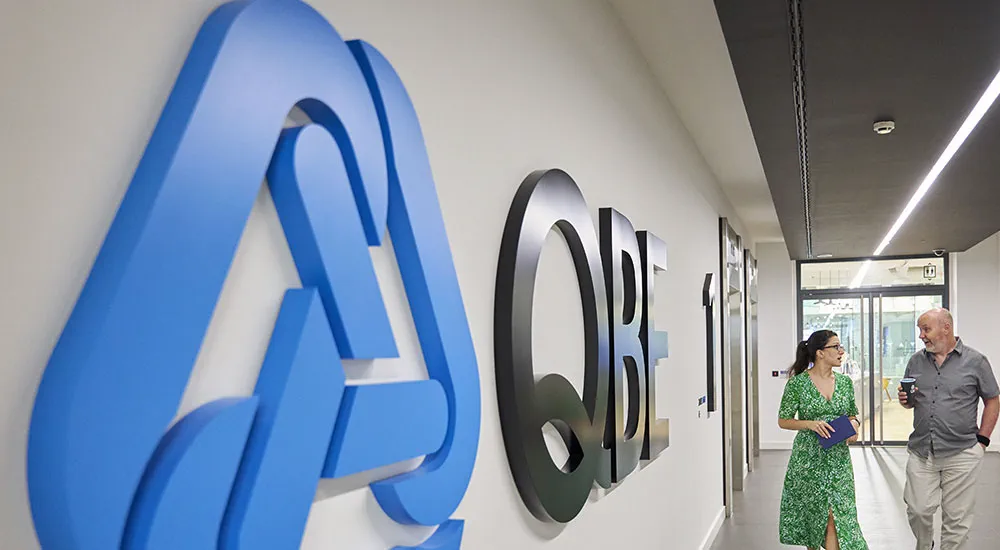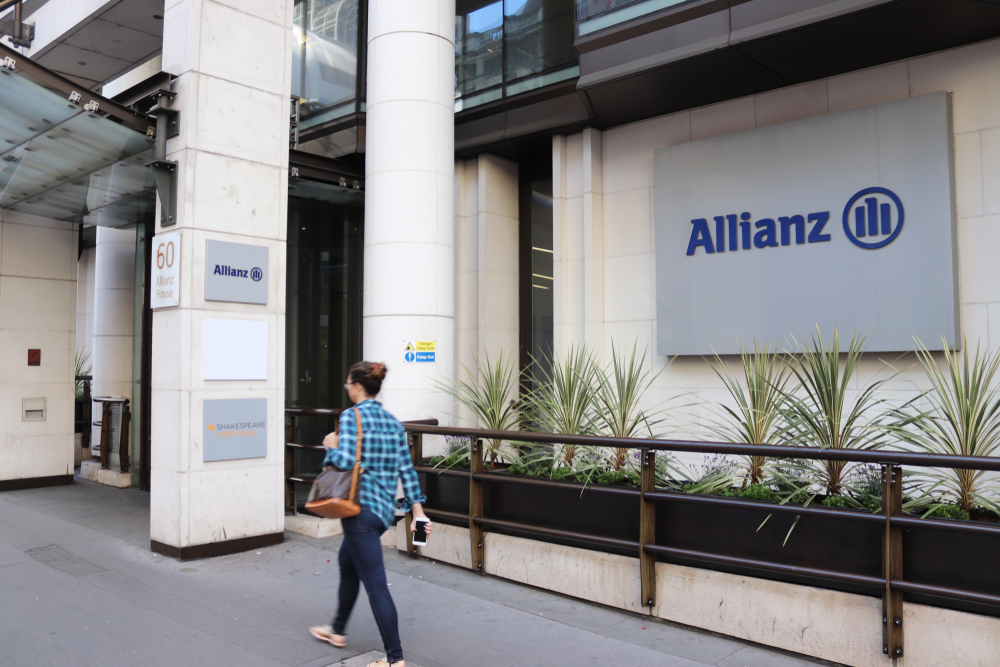Editor’s note: ImpactAlpha contributing editor Imogen Rose-Smith, a longtime senior writer for Institutional Investor, contributes a bi-weekly column on the policies, practices and strategies of the largest asset allocators, including pensions, foundations, and endowments. As Imogen says, she’s “tracking what investors do, not just what they say.”
ImpactAlpha, Dec. 13 – Farewell then, Jeff.
News broke this month that Jeffrey Ubben, the activist fund manager who rose to prominence with ValueAct Capital, is closing down his new investment firm, Inclusive Capital Partners, and returning capital to its investors. Inclusive’s sustainable investment approach “unfortunately hasn’t been rewarded in the public markets,” the firm wrote in a memo shared with investors.
Which is a polite way for the fund, which had $2.6 billion in assets, according to its most recent filing with the Securities Exchange Commision, to say, we underperformed.
The shuttering was taken as a sign of a broader pullback for sustainability and impact investing. It would be easy to think that the consideration of environment, social, and governance issues is going out of fashion among institutional asset owners, banks and the asset managers who love them.
This month, the board of the $95 billion Boston-based Massachusetts Pension Reserves Investment Management, or MassPRIM, voted to drop the term ESG. The board noted that language like “stewardship” and “sustainability” would be easier for the public to understand, given the “open warfare” against ESG in some parts of the country.
That giant gust of wind you just felt? It’s a bunch of hedge fund and private equity managers breathing a sigh of relief that they no longer have to give a shit about ESG. They can go back to the business of just making money. Ubben’s frenemy in the 2021 board shakeup of ExxonMobil, the hedge fund, Engine No. 1, has abandoned its own shareholder activism bent.
So take Ubben’s exit more as a signal of the dominance of (sometimes fickle) rich, white males in finance, and less about the fate of sustainable investing.
That doesn’t mean climate change, global inequality, threats to democracy, global health and the other grand challenges are not going to drive capital markets, innovation and risk, now and going forward.
They already are. What is Vladimir Putin and Russia’s invasion of Ukraine if not the Lion in Winter of the fossil fuel economy? What was the subprime mortgage crisis and ensuing global debt crisis but a giant statement on worldwide income inequality? What is behind the alarming popularist lurch in the U.S., Latin America and Europe?
So the challenges are real, even if Ubben’s portfolio didn’t fully capture the opportunities, nor stay the course. Other funds are hauling in billions for energy transition strategies, despite headwinds (see, “Private equity giants double down on the low-carbon transition and impact investing”). Generation Investment Management reports $25 billion in its Global Alpha fund. Brookfield Asset Management raised $15 billion last June for its inaugural energy transition fund. “Decarbonization, deglobalization and digitalization” are fueling Brookfield’s growth, said the firm’s Bruce Flatt.
And there was Ubben, at COP28 in Dubai this month, slamming the “green echo chamber” for not being inclusive enough about who it allows at the table to achieve the clean energy transition and made the case that the oil majors and major oil producing countries need to be a part of the conversation. Um, the 2,456 fossil fuel lobbyists at COP28, including Exxon’s Darren Woods, outnumbered Indigenous representatives by seven to one. OPEC nations are dooming an agreement to phase out fossil fuels.
And ExxonMobile, it turns out, appears to have been one of Inclusive’s most financially successful positions, according to SEC filings. The oil major first shows up Inclusive’s portfolio in its May 2021 filing, with a position of almost 1.7 million shares valued at $94 million or roughly $56 a share. This filling came a few months after Ubben joined the ExxonMobil board, as the company sought to batten down the hatches against Engine No. 1’s activist assault.
Today, Exxon Mobil trades at around $90 a share. In its most recent 13-F filing, Inclusive reported a position of 1,827,000 shares in Exxon, worth $215 million or $118 a share. Put aside the question of whether a sustainable investment fund should hold oil majors. And of how hard were Ubben and the other sustainably minded board members really going to push Exxon in a new direction. Exxon paid off for Inclusive. (The company’s actual year to date share price is down so Exxon probably did not bolster Inclusive’s portfolio much in 2023.)
So, Ubben can take his bouffant hair and his well tailored suits and go hang out at his plant-based “gathering place” in Sonoma County. One wealthy white guy shutting down his hedge fund isn’t the end of days for ESG.
Vibe shift
Back in 2020, when Ubben launched Inclusive Capital, it seemed like the sustainability wave was building. ESG was everywhere. After his two decades of short-term profit-seeking, Ubben’s defection from ValueAct to Inclusive was taken as a proof point in itself.
“I’m on a crusade,” he said at the time. “I’ve got five years to fix the harm I’ve done.”
He called “the end of finance.” He said Elizabeth Warren was right. Ubben hoped to raise $8 billion for Inclusive Capital as a different type of impact fund that would invest in “do good” companies. As for oil and gas companies and other legacy businesses, Ubben’s long-term outlook would effectuate positive change.
When Joe Biden won back the White House, he put a pin in the aggressive effort by the Trump administration to roll back consideration of E, S and G. The next year, as Engine No. 1 staged its activist campaign against Exxon, Ubben was given a board seat as part of a tactical play as the company pushed back against the Engine No. 1’s insurgent slate of directors.
Institutional asset owners increasingly were asking their fund managers questions about ESG as well as, in the wake of the killing of George Floyed and the #MeToo movement, diversity, equity, and inclusion. By 2022, even Carl Icahn (speaking of rich white assholes) was issuing presentations about how McDonalds was failing at ESG. Icahn was only ever in it to save the pigs, but still.
Almost every single manager was figuring out how to talk about ESG, have a sustainable investment policy, and improve organizational diversity, if only by hiring a couple of interns who didn’t look like everyone else.
Then something changed. The fossil fuel pushback began in earnest. Oil prices rose. Momentum shifted. ESG became a four letter word. Politically charged, and toxic, U.S. asset allocators backed away from the terminology. Some fund managers followed.
Ubben had originally sought to raise $8 billion for Inclusive Capital; perhaps he will hit his target with his next fund.
Where the money is
My abiding memory of Inclusive Capital Partners is Ubben, 62, shilling for capital – sorry speaking – at the Future Investment Initiative, or FII, aka “Davos in the Desert,” the annual conflab in the Saudi capital of Riyadh. The government-backed gathering attracts major bank and asset management CEOs, as well as global world leaders and other “change makers.”
These titans of finance are not drawn to the FII Institute like moths to a flame because the weather in Riyadh in October is balmy (it’s not). Rather, it has something to do with the fact that the Said’s are very very very rich – from oil – and they are hoping some of that money and business will come their way. The Saudis need to diversify their economy from fossil fuels. (As does the UAE, which was the gossamer-thin argument for hosting COP28 in Dubai and held its own finance gathering one week earlier, drawing big-name financiers).
And that, apparently, was part of Ubben’s capital-raising strategy for Inclusive Capital. Close to half Inclusive Capital’s capital came from outside of the US, according to SEC filings. I just think it looks bad, if you are launching a major sustainable investment firm, to so prominently be courting Saudi funds.
Then there is the question of performance. And the truth is again, the last 24-months have been tough on many public market ESG investors.
I don’t know what Inclusive Capital’s actual performance was, nor am I privy to more than the broadest details of their investment strategy. (Inclusive spokesperson and inclusive capitalism advocate Lady Lynn Forester de Rothschild did not return emails; FT reports she left the fund last May.)
A look at the funds publicly filed 13-F’s is illuminative, and lends some credence to the idea that making money in the public markets as a sustainable investor can be tough.
One of the fund’s early holdings was a position in Nikola Corp, the electric truck manufacturer who’s founder and CEO was convicted of fraud last year. Ubben admits to pushing the upstart carmaker to go public too soon. In February, 2021 Inclusive reported holding 102,75,437 shares of Nikola worth $157 million, or $15.26 a share. By June 30, 2022, the last time the fund reported holding Nikola, it valued its position of 7,474,130 shares at $36 million, or $4.82 a share. Today, the company trades at below $2 a share.
Another company that Inclusive was an investor in from the beginning, and a major owner of, is Enviva Inc, a Bethesda, Maryland based biomass company which is the world’s largest producer of wood pellets for energy production. Inclusive Capital is a major holder with a 7.2% ownership stake in Eniva, and Ubben is a board member. At the time of Inclusive’s first reported position in the company, in December of 2021, Enviva was valued at around $45 a share. In October of 2022 however the short seller Blue Orca Capital issued a report on the company accusing it of clear-cutting trees and perpetuating an “ESG farce.”
Enviva denies the claims, but, really, how can shipping wood pellets across the Atlantic and burning them for fuel be sustainable? A class-action suit followed. Today Enviva trades at under $2 per share. Ubben resigned as a board director in late November. According to the announcement which the company filled with the SEC, the hedge fund manager’s action “did not result from any disagreement with the Company on any matter relating to the Board or the Company’s management, operations, policies, or practices.”
Indoor farming startup AppHarvest and sustainable fiber company Unifi have lost most of their value since Inclusive invested, as the FT reported.
Some of Inclusive’s long-term holdings outside of Exxon, such as Verra Mobility, a Mesa, Ariz.-based smart transportation company, have done ok ($13.42 a share to $18.70 a share). The Herndon, Va.-based edtech company Strategic Ed, is close to double where it was since Inclusive’s first reported holding at the end of 2021. Reuters reports that investors said some of Inclusive’s private investments also “buoyed the portfolio.”
Stay the course
In any event, the stock market is (still, remarkably) booming, up 21% year to date, making it hard to outperform with a concentrated portfolio of holdings. And maybe Ubben is right, that the markets have already priced in any ESG value and are not currently rewarding green investments by businesses.
In reporting on Inclusive’s portfolio Bloomberg performed a similar analysis. This year in particular, the hedge fund was losing on both sides of its trade. Oil majors were down, while “green” stocks have taken a beating over the past couple of years. The S&P Green energy index is down 30% for the year. A recent Bloomberg survey suggests the slump could continue into 2024.
Some sustainability types did not like the fact that Inclusive was invested in firms not known for their ESG bona fides like Exxon and the German conglomerate Bayer, according to the FT and others. Was Inclusive’s brand of shareholder activism ever really going to be effective?
As Inclusive Capital’s experience suggests picking those winners is going to be hard. And it may be that the public markets are not quite ready. This, ironically, is an argument for more active management, not less.
Even if things didn’t work out for Inclusive (I mean, Nikola?), it does not mean that the underlying thesis is wrong. At the end of the day, companies that crack the nut of the clean energy transition and the circular economy are going to be the giants of the next era. Perhaps with fewer rich white guys at the helm? Investors who stay the course should be rewarded.
I don’t care what you call it. The challenges addressed by ESG aren’t going away. But that doesn’t mean investing around them is easy. Or fundraising in this environment. Calling yourself an ESG manager no longer magically opens up the money spigot. It’s not all just hanging out in Riyadh, Davos, and LA and coming home with bags of money.
It’s going to take hard work to right the global economy. Even by his own timeline, Jeffrey Ubben still owes us a couple years left to fix the harm he’s done.
Imogen Rose-Smith is a contributing editor at ImpactAlpha.











